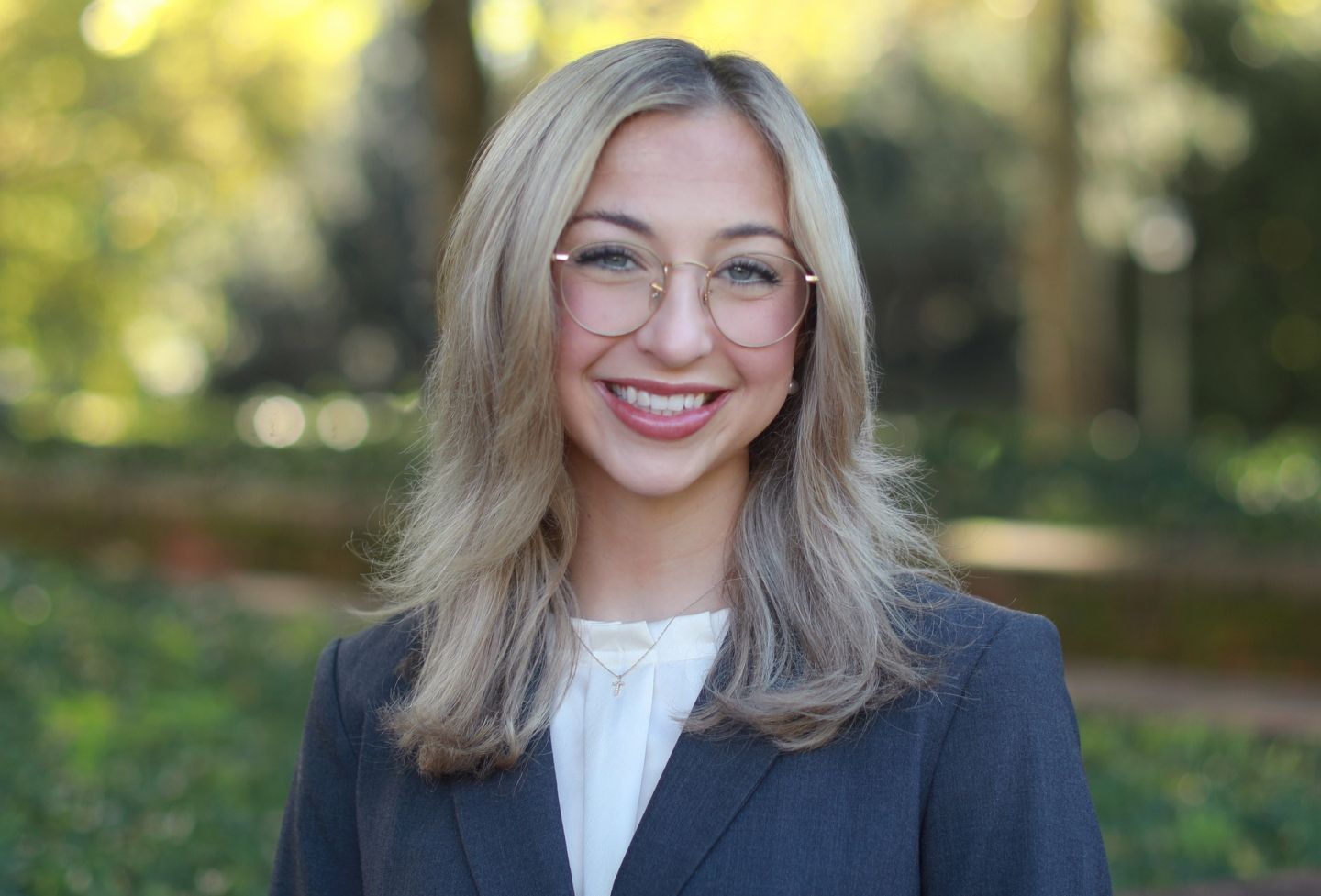This year’s Karsh-Dillard Scholars at the University of Virginia School of Law hope to use their law degrees to promote innovation, become an entertainment lawyer and work in nonprofits, among other goals.
The full-tuition scholarships, given to top incoming first-year students with demonstrated leadership qualities, are funded as part of a historic gift by Martha Lubin Karsh ’81 and Bruce Karsh ’80, who contributed $44 million to the Law School in 2018. The awards also bear the name of the Law School’s fourth dean, Hardy Cross Dillard ’27.
Incoming students Aldebaron Levin, Thomas Nolan, Brady Sanders, Lily Taylor and Marissa Varnado are among this year’s scholarship recipients. They spoke about their experiences prior to law school and why they chose to pursue a J.D. at UVA Law.
Aldebaron Levin
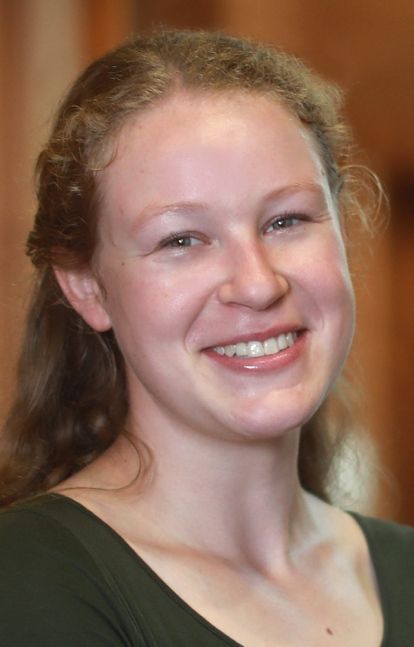
Hometown: Ramona, California
Education: B.A. in philosophy, Lewis & Clark College
Notable work/educational experience: During my final year of college, I launched A DayDreamer’s Watches, an analog watch company that produces high-quality and whimsical designs. My first design was inspired by the koi pond on my undergrad campus, and the watch is like a small, wearable pond with fish swimming out from beneath the safety of lily pads. My intent is to create dynamic art using analog watches as a medium.
Why study law? I’m excited to study law because I enjoy the sort of logical reasoning required to build a case. In college, I majored in philosophy, minored in computer science and specialized in formal symbolic logic. I love the type of logical reasoning required either for forming a strong philosophical argument, writing an optimized computer program or solving a modal logic proof. I’m looking forward to focusing on that logical reasoning in my legal studies without the distraction of abstract philosophical topics, debugging code or ambiguous translations. And I can’t wait!
What would you like to do with your law degree? I’m not sure yet. While I am looking forward to the challenging and fulfilling career that a law degree will bring me, I am undecided about the specifics. I’ve considered using my law degree to support small businesses like my own, and I’m also emotionally invested in public education reform. But I look forward to exploring the possibilities and opportunities available to me at UVA!
Thomas Nolan
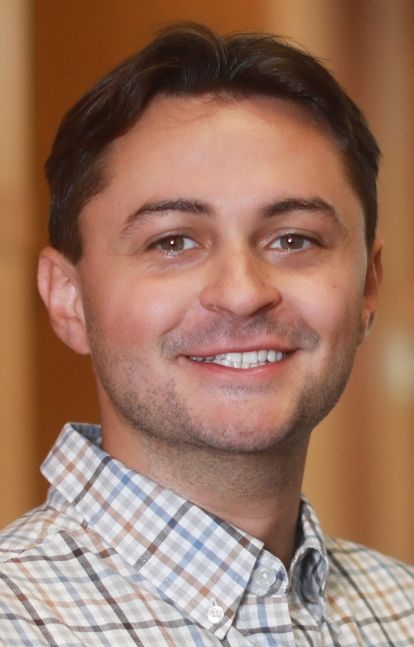
Hometown: Rockland, New York
Education: M.S. in global governance and diplomacy, University of Oxford; B.A. in near Eastern studies and government, Cornell University
Notable work/educational experience: After finishing undergrad at Cornell, I received a scholarship to pursue a master’s in global governance and diplomacy at Oxford, where I focused extensively on the intersections of international law, diplomacy and post-conflict peacebuilding. This course sparked my interest in illicit weapons trafficking and later influenced me to pursue full-time work in nuclear weapons counterproliferation after I graduated. In the two years between my master’s and starting at UVA, I worked at an international nonprofit enforcing U.N. sanctions of nuclear weapons traffickers. I had the chance to implement projects on the ground in Senegal, Zambia, Brazil and South Africa, and led remote projects impacting nearly every continent during my time. This was easily one of the most interesting ways to start off my legal career!
Why study law? I grew up hearing stories of “The Troubles” in Northern Ireland from my father and other close family members who grew up amid the sectarian conflict. Many relatives and friends fell victim to the violence despite not being involved in the fighting themselves. Hearing their stories, often ending without a stereotypical “underdog justice” arc, helped me realize that the existence of protective laws alone cannot always ensure justice for victims of conflict. Rather, it takes individuals to enforce, defend, critique and, when necessary, amend the laws created to remedy wrongdoing. I hope to become one of these individuals by training as a lawyer.
What would you like to do with your law degree? To be a cliché, I’d like to become the best possible lawyer I can with the resources I’ve been privileged to obtain thus far. That can take me down several paths, so I’m keeping my sights open to any opportunity that can help me expand my writing, argumentation and critical thinking skills to become a stronger advocate in the future. In any case, I plan to center my career around my international legal interests so that I can contribute to my mission of evaluating and reconceptualizing our existing laws down the line.
Brady Sanders
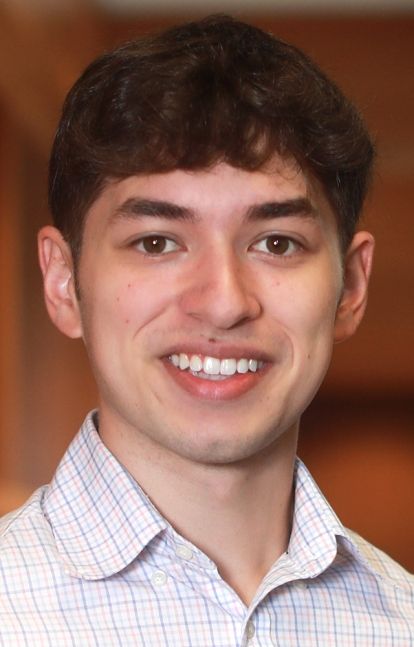
Hometown: Lawrenceville, Georgia
Education: B.S. in chemistry, Georgia Institute of Technology
Notable work/educational experience: As a student, my most memorable work experiences included working with a pharmaceutical research group at my university and being a United Nations Fellow through the College of Business. While these were drastically different experiences, they instilled in me invaluable skills that will undoubtedly help me in law school and beyond. One of the most valuable skills I gained was learning how to discover and understand nuances, whether in dialogues between delegations or in chemistry experiments.
Why study law? I became interested in law during an internship in high school. Through this internship, I learned that a legal career encompasses everything I desire in a job: being able to impact my community, conducting complex research and its application to everyday life. While I knew law was a good choice for me, I remained hesitant, as I loved science. I later realized I could pursue both of my passions — law and science — through patent law, which invigorated my desire to study law.
What would you like to do with your law degree? While I am being mindful of keeping my eyes open to the different areas of law, I see myself thoroughly enjoying intellectual property and patent law. These specific areas encouraged me to obtain a legal education as an opportunity to promote innovation and help make my community a better place.
Lily Taylor
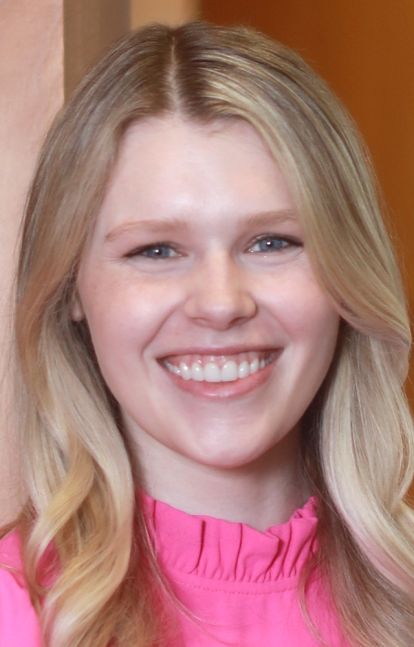
Hometown: Tulsa, Oklahoma
Education: M.A. in English, Auburn University; B.A. in journalism, University of Oklahoma
Notable work/educational experience: During my undergraduate years at the University of Oklahoma, I interned three times with NBCUniversal, working for the cable entertainment division on their digital news and new media teams and in the public relations group. After graduation, I pursued my master’s degree in English at Auburn University, with a concentration in creative writing. I specialized in the lyric essay, a nonfiction form that brings elements of poetry into prose, which allowed me to explore writing through a new lens.
Why study law? In the summer of 2020, I was in the middle of my second internship with NBCUniversal, working for E! News in its new media division, when I was given two short-form news scripts to pen: an update on the investigation into the tragic death of “Glee” star Naya Rivera and a tribute in Oprah Winfrey’s O Magazine to Breonna Taylor. Both stories touched on delicate, important subjects, and as part of the standard process for sensitive news stories, I worked with E!’s legal department to vet the scripts’ content before production. This experience highlighted the great responsibility placed on those attorneys, and I realized then that I desired that same responsibility.
What would you like to do with your law degree? Though I anticipate entering private practice first, I hope to eventually use my media and entertainment background to work as in-house counsel in that field.
Marissa Varnado
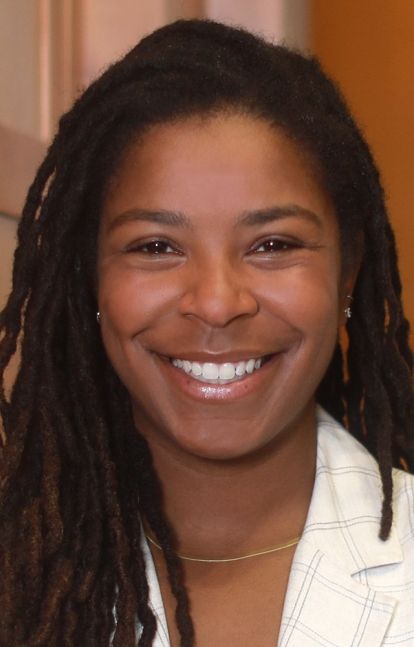
Hometown: Ellicott City, Maryland
Education: M.A. in education, Lipscomb University; B.A. in sociology and international studies, Johns Hopkins University
Notable work/educational experience: Immediately upon graduating from Johns Hopkins University, I became a high school teacher and girls basketball coach through Teach For America. I was placed in Nashville, Tennessee, where I taught English-language learners. These students were newcomers who arrived in the United States primarily from Central and South America, Mexico and Egypt. I learned so much from this time about culture, leadership and certainly resilience, as this period fell squarely during the COVID-19 pandemic.
Why study law? I am studying law because it is a tool that will help me effect change and work toward equitable outcomes for people in marginalized communities. Though it is not the only — or even the primary — avenue toward justice, I believe gaining personal knowledge of the law and making that knowledge more accessible to folks struggling for justice is an important part of creating change.
What would you like to do with your law degree? I am interested in justice and equity, so I am excited to explore the vast world of public interest at UVA! Much of my work up to this point has been focused on secure and affordable housing, but I am also interested in questions of labor and human rights. I anticipate working in the nonprofit world and potentially returning to academia.
Founded in 1819, the University of Virginia School of Law is the second-oldest continuously operating law school in the nation. Consistently ranked among the top law schools, Virginia is a world-renowned training ground for distinguished lawyers and public servants, instilling in them a commitment to leadership, integrity and community service.
